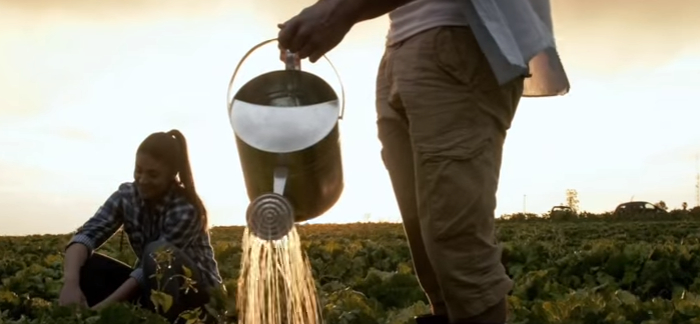Sustainable living. It’s something that is attractive in some way to everyone. One of the ways we can look to support that kind of lifestyle is through organic farming. Both consumers and producers see a number of advantages in supporting organic farmers, but there are some disadvantages with this form of agricultural production which must be considered. Here are some of the key points to consider on this issue.
What Are the Advantages of Organic Farming?
1. The nutritional value of the food produced could be higher.
When we consider the nutritional value of food, what we’re generally talking about is the mineral and/or vitamin content it contains. Organically grown food has often been found to be quite superior in terms of mineral content when compared to industrialized agricultural methods. It’s not just people who get potentially better health either – the soil also fosters more life through the organic growing process.
2. There is a reduction in potential artificial contamination.
Organic foods are grown differently than chemically grown foods. This means there is a reduction of herbicides, pesticides, and fungicides that are in the food products that are brought to market in most instances. Although data conflicts on what chemically grown food can do to a person’s health, some may feel that the risk just isn’t worth taking.
3. Organically grown food is often reported to taste better.
This is often a direct relation to the sugar content of the food that has been brought to market. Instead of being artificially quickened to produce results, organic foods are allowed to naturally ripen before harvest. This can also improve the nutritional value of the food in addition to helping it taste better with every bite.
4. Food that is organically grown can be stored in a healthy manner for longer periods of time.
Of course foods that contain artificial preservatives will last longer than organic foods. If you’re looking for fresh produce to consume, however, you’ll find that organic foods typically have a longer storage life than their chemically grown counterparts.
5. It gives croplands an enhanced drought resistance.
Plants that are grown organically are naturally more tolerant to drought. This is because the numerous fertilizers used in the chemically growing process force the plants to consume water more often to maintain a nutrient balance.
What Are the Disadvantages of Organic Farming?
1. Productivity can be dramatically reduced.
Compared to industrialized agriculture, organic farming doesn’t stand a chance in the short-term. Organic croplands cannot produce the same large yields. This disadvantage is reduced if the time period of evaluation is stretched out to multiple growing seasons because organic farming produces consistent results, but it will always be lower results.
2. Cultivation takes time during the sowing process.
Croplands must typically be cultivated before organic farming can occur at the start of the season. This is done to remove weeds prior to sowing. Without proper care, this can disrupt the integrity of the soil. It’s also an issue seen in industrial agriculture on a larger scale, but organic farming must take this disadvantage into account.
3. Crops will always co-mingle with other crops.
It’s not just dust that’s in the wind. It’s also seeds from various croplands that naturally spread. Organic farmers that live next to crops that have GMO products will often find that some mixing occurs when they go to harvest the final product. Some GMO seed manufacturers have even attempted to sue farms because of this co-mingling effect in the past. There’s not much that can be done about this currently.
4. Organic farming takes time.
There’s no getting around the fact that it takes time to create organic goods. This translates into food products that cost more at the market. In times of socioeconomic distress, shoppers are going to choose the cheaper food options so they can afford to have food to eat. This can put some organic farming operations at a competitive disadvantage.
5. It requires a certain amount of skill to farm organically.
You can’t just throw on a specific chemical to fix a problem when you are organic farming. There has to be a natural solution developed to combat certain problems which might come up during a growing season.
These organic farming advantages and disadvantages show that the positives and negatives need to be carefully balanced for a successful experience. By evaluating these key points, it can become easier to determine if organic farming is the right course of action to take.




